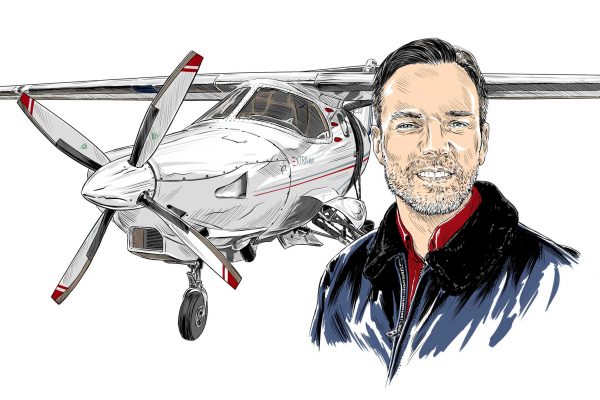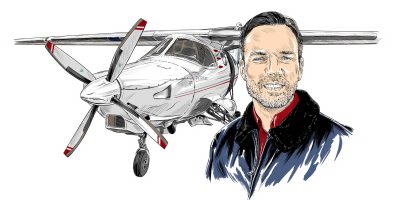At the time of writing we have 29 March as the date on which solo flights can start again and 12 April for flights with an instructor. From a skills point of view, it may be worth waiting until the 12 April, but either way, let’s look at some reminders around rating validity and regulatory changes over the last year.
Below is focused on licensing. For a more general catch up on regulations and safety in GA flying I know there is soon to be a new edition of the CAA’s Skyway Code.
Do I have a valid rating?
Licence documents are generally non-expiring. It is the ratings on the licence (SEP, MEP etc) that expire. Different ratings have different requirements, but PPL (Aeroplane) holders will have initially been issued with a Single Engine Piston (SEP) class rating, which is valid for 24 months. The expiry dates of your ratings will be on the ‘certificate of revalidation’ table of the licence document.
To gain another period of validity for a rating it needs to be ‘revalidated’. Revalidation refers to the extension of the rating for another validity period while the rating is still valid, whereas renewal refers to the case in which a rating has expired, and the holder is seeking to reactivate it.
The SEP and TMG (Touring Motor Glider) ratings can be revalidated by experience. This must consist of 12 hours in the 12 months preceding the expiry date of the rating, including six hours as pilot in command, 12 take-offs and landings and one hour’s training with an instructor. Note that the experience requirements must be completed in the second 12 months of the rating’s 24-month validity period. Provided the experience requirements are met, an examiner can revalidate the rating by signing the certificate of revalidation page of your licence. If the experience requirements are not met, then revalidation can be achieved by a proficiency check with an examiner, which will be a slightly abbreviated profile of the initial PPL skills test.
Once a rating has expired, it must be renewed by proficiency check. There is also a requirement for some ‘refresher training’ prior to doing so. If the period of expiry is short, no training required can be determined.
For SEP and TMG ratings expired by up to three years refresher training can now be done by an independent instructor, for most other ratings it must be at an Approved or Declared Training Organisation (ATO or DTO). Pilots who hold a valid and equivalent rating on another ICAO licence (for example FAA) are excused from the training requirement and can go straight to proficiency check.
Remember that regardless of rating validity, to carry passengers on a flight you need to have conducted three takes-offs and landings in the relevant class or type of aircraft within the last 90 days.
Alternative experience requirements
Now there is still an alternative experience option for revalidation, which at the time of writing is available until the end of April (likely to be extended) for the SEP, TMG, Self-Launching Motor Glider (SLMG) and the suite of ratings that may be attached to an NPPL(A). For pilots with between eight and 12 hours experience (i.e. just shy of the 12-hour requirement) it allows you to trade less total experience for more take-offs and landings and an extra 30 minutes with an instructor. For a reminder of the full details, check back to this column in the January 2021 edition of FLYER.
Medicals
Lockdown has probably seen a lot of medical certificates pass their expiry, but to get flying again it is possible to make a ‘pilot medical declaration’ (PMD) to the CAA without the involvement of a medical practitioner. This is limited to flying in the UK only, but can be done by anyone holding a UK issued licence (Part-FCL or ANO) and regardless of level (PPL, CPL etc). There are some complexities around the terms and conditions of doing a declaration though – not everyone may qualify on medical grounds, so read the relevant CAA web page carefully.
Brexit housekeeping
There is also a recent exemption (pending a more permanent change) that allows holders of licences issued under the Air Navigation Order, such as the NPPL(A) with an SSEA rating, to fly Part-21 aircraft (for example C172, PA28) on a limited basis, for the purpose of gaining currency or competence in an equivalent class of aeroplane. For full details click ORS4 1471.
Remember ‘Part-21’ aircraft just refers to an aircraft that would have been considered ‘EASA’ when the UK was still part of the EU – the regulatory line around these types has not changed because of Brexit, even if in time it will hopefully disappear. It is also worth remembering that in parallel to Part-21 and non-Part-21 aircraft, we still use the term ‘Part-FCL’ in UK law to refer to a licence that was issued under the Aircrew Regulation, as distinct from a ‘national’ or ‘ANO’ licence that would be issued under the Air Navigation Order.
Prior to the end 2020 and the Brexit transition period a number of pilots applied for EASA licences in other EASA member states. At the time this would have meant surrendering the UK issued EASA licence. For pilots who did this, from 1 April there will be a mechanism to get a UK Part-FCL licence issued – the CAA have published details of this via the Skywise channel. Licences issued by EASA member states prior to 1 January 2021 also remain valid on UK registered aircraft until the end of 2022 – see caa.co.uk/cap2017 for details.
More info:
Caa.co.uk/ga




